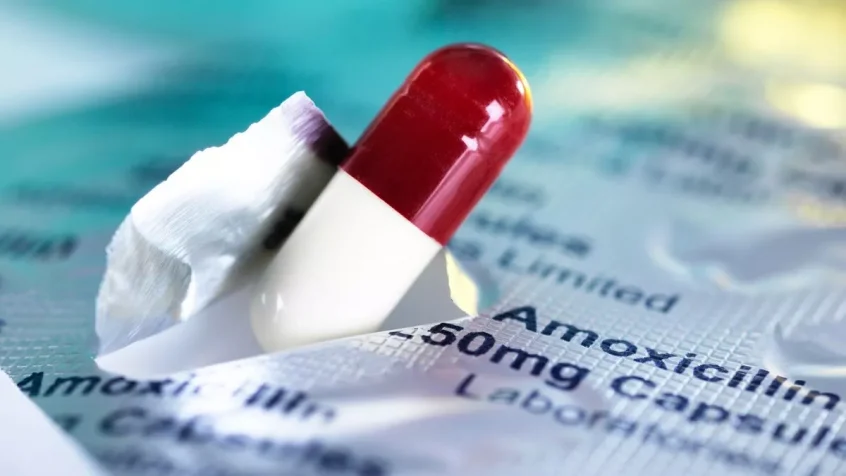Whenever we take antibiotics they kill ‘good’ bacteria in the gut, which allows antibiotic-resistant bacteria to get extra nutrients and thrive.
Some antibiotics target specific bacteria, but some are ‘broad spectrum’, meaning they can kill a wide range, including both ‘bad’ bacteria which cause infections, and ‘good’ bacteria that live in our gut and help digestion and other processes. Carbapenems are strong broad-spectrum antibiotics used by doctors as a last resort, but some bacteria are even resistant to these, including strains of E. coli.
These bacteria colonise the gut but can spread to other sites, causing difficult-to-treat infections such as sepsis and urinary tract infections. A study from Imperial College London shows how these resistant bacteria thrive after antibiotic use, allowing them to multiply in the gut, forming a ‘reservoir’ of disease-causing bacteria.
To determine the effect of antibiotics, the team tested them on samples of human faeces in the lab, alongside experiments in mice and lab tests of carbapenem-resistant E. coli (Enterobacteriaceae, CRE). Bacteria in the gut, whether ‘good’ or ‘bad’, need nutrients to grow and multiply.
The experiments showed when antibiotics killed beneficial bacteria, the pathogenic bacteria took advantage of the extra nutrients available due to less competition. The team also showed that killing beneficial bacteria reduced the level of their waste products which inhibit pathogenic bacteria from growing. This helped the pathogenic bacteria to thrive.
Imperial’s first author Alexander Yip said: “Understanding how antibiotics cause carbapenem-resistant Enterobacteriaceae to grow in the intestine means we can develop treatments to restrict their growth in the intestine, which will lead to a reduction in these antibiotic-resistant infections.”
The team wants to identify which beneficial bacteria can “out-compete” pathogenic bacteria in the absence of antibiotics. In other words, which good bacteria are able to make better use of the same nutrients and produce metabolites that hold back pathogenic bacterial growth. From this research they hope to create “microbiome therapeutics”.
Lead researcher Dr Julie McDonald said: “We could give patients inhibitory metabolites to restrict the growth of resistant bacteria. After a patient has stopped taking antibiotics, a mix of beneficial gut bacteria may help their gut microbiome recover, and restore depletion of nutrients and production of inhibitory metabolites.
“These microbiome therapeutics could reduce the risk of patients developing invasive antibiotic-resistant infections, reduce the recurrence of invasive CRE infections in chronically colonised patients, and the spread of CRE to susceptible patients.”

